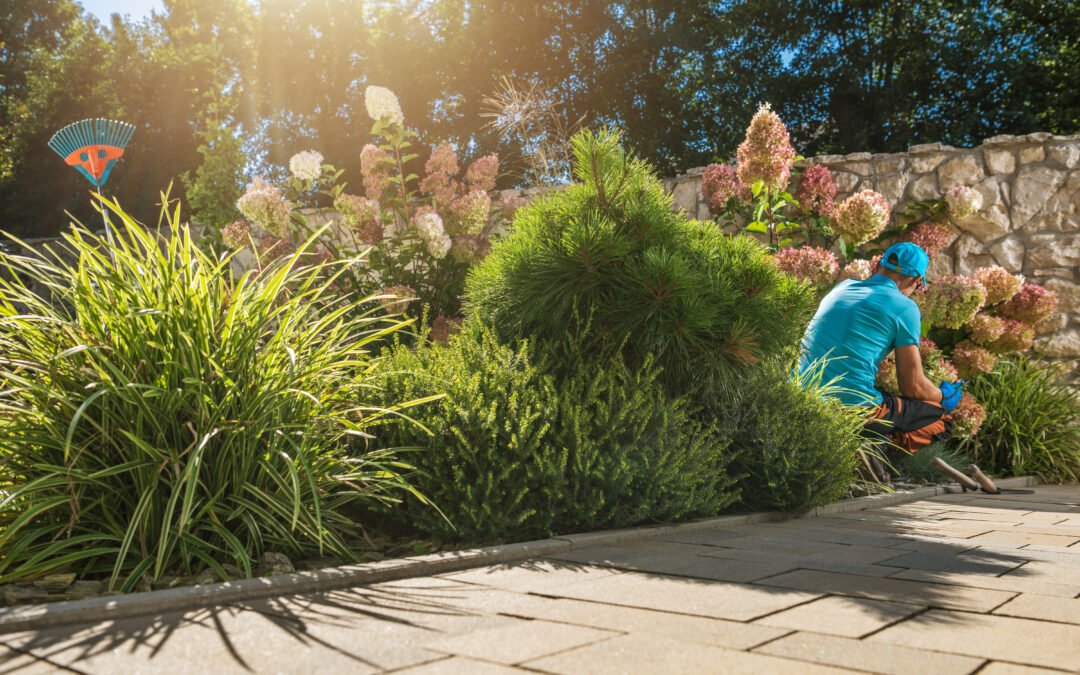Maintaining a coastal garden presents unique challenges due to salt exposure, strong winds, sandy soils, and unpredictable weather conditions. However, with the right maintenance strategies, your seaside garden can flourish, offering beauty and resilience against the elements. This guide will provide essential tips and best practices for coastal garden maintenance to help you keep your landscape looking vibrant year-round.
Key Challenges of Coastal Garden Maintenance
Coastal gardens are exposed to several environmental factors that can impact plant health and soil quality, such as:
- Salt Exposure: Salt carried by sea breezes can accumulate on plant leaves and in the soil, leading to dehydration and nutrient deficiencies.
- Wind Damage: Strong coastal winds can uproot plants, dry out soil, and cause physical damage.
- Sandy Soils: Poor nutrient retention and drainage issues require soil amendments and frequent irrigation.
- Humidity & Fungal Growth: Excess moisture can encourage mold, mildew, and fungal diseases.
Essential Coastal Garden Maintenance Tips
1. Choosing the Right Plants
Selecting salt-tolerant and wind-resistant plants is the first step to successful coastal gardening. Some excellent plant options include:
- Trees: Palm trees, Southern magnolia, and live oak.
- Shrubs: Oleander, sea grape, and wax myrtle.
- Ground Covers: Beach sunflower, creeping thyme, and sea oats.
- Flowers: Lantana, blanket flower, and periwinkle.
2. Soil Management
Coastal soil often lacks nutrients and drains too quickly. To improve soil quality:
- Incorporate organic matter such as compost to boost fertility.
- Add mulch to retain moisture and reduce salt accumulation.
- Use slow-release fertilizers to provide consistent nutrition.
3. Protecting Against Salt and Wind
To minimize salt damage and wind exposure:
- Rinse Plants Regularly: Spray fresh water on foliage to remove salt deposits.
- Windbreaks: Install hedges or fencing to shield plants from strong winds.
- Salt-Resistant Mulch: Use mulch materials like bark or pine needles to prevent salt buildup.
4. Efficient Watering Techniques
Proper irrigation is essential for maintaining healthy coastal gardens:
- Install a drip irrigation system to provide deep, consistent moisture.
- Water early in the morning to reduce evaporation and fungal issues.
- Monitor soil moisture levels regularly to prevent over- or under-watering.
5. Seasonal Coastal Garden Care
Coastal gardens require different maintenance tasks throughout the year:
| Season | Maintenance Task |
|---|---|
| Spring | Fertilize plants, prune dead branches, plant new shrubs |
| Summer | Monitor irrigation, apply mulch, protect against pests |
| Fall | Remove debris, plant salt-tolerant flowers, aerate soil |
| Winter | Protect delicate plants from cold snaps, reduce watering |
6. Preventing Coastal Garden Pests
Salt and humidity attract certain pests that can damage your garden. Keep an eye out for:
- Aphids, mealybugs, and scale insects on shrubs and flowers.
- Fungal diseases like powdery mildew and root rot.
- Salt-tolerant weeds competing for nutrients.
Use organic pest control methods such as neem oil and beneficial insects to manage infestations naturally.
7. Sustainable Coastal Gardening Practices
To create an eco-friendly coastal garden:
- Choose native plants that are adapted to coastal conditions.
- Implement rainwater harvesting systems to conserve water.
- Use biodegradable mulches and organic fertilizers to support healthy soil.
Comparative Table: Coastal vs. Inland Garden Maintenance
| Feature | Coastal Garden Maintenance | Inland Garden Maintenance |
| Salt Exposure | High – Requires salt-tolerant plants | Low – Regular plant selection |
| Wind Resistance | Essential – Requires barriers | Moderate – Minimal barriers needed |
| Soil Type | Sandy, fast drainage | Rich, better water retention |
| Humidity Levels | High – Prone to fungal growth | Moderate to low humidity |
| Maintenance Needs | Frequent soil amendments | Standard fertilization routines |
Conclusion
Coastal garden maintenance requires a proactive approach to address salt exposure, wind challenges, and soil conditions. By selecting the right plants, adopting effective watering techniques, and implementing protective measures, you can enjoy a thriving seaside landscape year-round.
At Evergreen Landscape FL, we specialize in coastal landscaping solutions that help you maintain a stunning outdoor space despite the coastal environment’s challenges. Contact us today for expert advice and personalized coastal garden maintenance plans.

